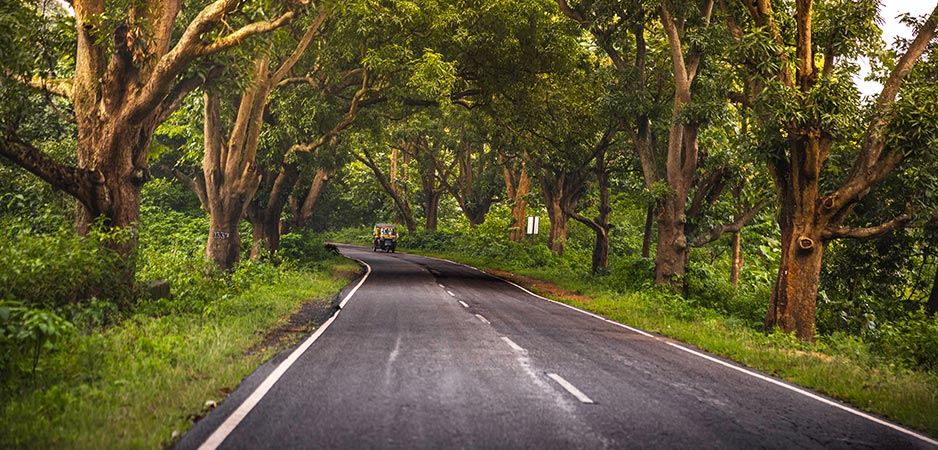In the hill forest districts of Bangladesh, known collectively as the Chittagong Hill Tracts (CHT), the inhabitants continue to suffer in agony. Many of these indigenous peoples speak Sino-Tibetan languages and practice Buddhist, Hindu, or other local religions, traits which set them apart as a minority in largely Indo-Aryan-speaking and Muslim Bangladesh. They are suffering because the government has not complied with the peace accord, celebrated at the time, which it signed 25 years ago with armed militias seeking autonomy in the region.
The United People’s Party of the Chittagong Hill Tracts (PCJSS), the political high command of the mainly Chakma, Marma, and Tripura guerillas called the Shanti Bahini (“Peace Force”), signed a peace accord with the government of Sheikh Hasina on 2 December 1997. The historic CHT Peace Accord brought to an end a protracted insurgency of more than two decades, a bush war that had cost many lives and livelihoods in southeast Bangladesh.
Parliament quickly ratified the accord, and the surrender of the combatants and their ordinance quickly followed. Finally, thousands of ethnic refugees, until then languishing in squalid camps in the neighboring Indian state of Tripura, were able to come home.
Implementation is taking forever
However, PCJSS leader Jyotirindra Bodhipriya Larma, known as Shantu Larma, lamented that this silver jubilee is nothing to celebrate. The government has not been willing to implement it. Unfortunately, a quarter of a century after the signing of the accord, a peace audit claims that only 25 provisions and 18 clauses have been partially implemented, out of 72 provisions.
While the government celebrates the anniversary of the proclaimed peace, full-fledged governing councils have not been formed through direct elections, as promised by the peace accord, in any of the CHT’s three districts. The interim councils were formed with hand-picked ruling party members, mostly ethnic Bengalis from outside of the region and a few ethnic minority members. The government remains conspicuously silent when the implementation of the fundamental provisions of the accord is raised.
In spite of these headwinds, Shantu Larma is hopeful that the accord will see the light of day by its golden jubilee, if not earlier. And so it must, for unless the peace accord, signed during the first term of Sheikh Hasina’s government, is put into reality, peace will remain elusive for the indigenous peoples of these beautiful hills.
In the last 25 years, the CHT Peace Accord Implementation Committee has held only six meetings. This is a reflection of the government’s lack of seriousness.
Larma remains loyal to the Prime Minister, who is now in her fourth term. He argues that as she made a sincere political commitment to getting the peace deal inked and ratified, so will she surely strive to make progress in implementing the accord.
However, he reminded the national government that the responsibility to implement the peace accord lies with them and with no one else, not PCJSS or the former insurgents. He fears that the delay will cause frustration and anger among the hill people, creating a political divide in the community, especially among young people and students. In the years since the accord, young people have from time to time acted out violently in the hopes of putting pressure on the government to realize the accord’s implementation.
A roadmap to implement the accord to achieve peace was also agreed with the government. Those affected do not understand what is causing the delay in the implementation of the accord.
A history of discrimination
The PCJSS argues that, like previous regimes, the ruling Awami League party has been implementing a policy of Islamization, and, coupled with the crisis, it has intensified militarization in the CHT to completely eradicate the national identity of the hill people. In this, they see the continuation of a long and painful history.
The military dictator General Ziaur Rahman (1977-1981) attempted to Islamize the hill forest and pushed tens of thousands of landless Muslim Bengali settlers from the plains districts to outnumber the local ethnic population.
Parleys with the government’s liaison committee were initiated during the military junta of General Hussain Muhammad Ershad (1982-1990) when he offered an olive branch to the guerillas to surrender. The peace process was entrusted to a small group of immature military officers, who forced the community leaders to sign a halfhearted peace treaty. This treaty was rejected by the Shanti Bahini commanders.
Subsequently, when Khaleda Zia’s Bangladesh Nationalist Party came to power in 1991, she unilaterally declared a ceasefire in the hills and initiated peace talks with members of parliament. Her regime experienced hiccups as the liaison committee could not spell out a political solution to the crisis. The end result was zero. The dialogue was abruptly abandoned in 1996.
When Sheikh Hasina came to power a year later in 1997, a flurry of peace talks resulted in the CHT Peace Accord after the government recognized the crisis in the hill forest as the political problem it was. The Peace Accord was written with the supreme sacrifice of the blood of the hill peoples and the political vision of the Awami League government, but the effects of Bengali ethnic imperialism still continue.
Thousands of people in Bangladesh, especially those visiting the hill forests as tourists are not aware that de facto military rule continues and that the so-called Operation Uttaran, the government’s offensive, has not been withdrawn, despite what was agreed in the accord.
Rights groups complain that appalling human rights abuses, including illegal detention, extrajudicial deaths, enforced disappearances, legal harassment, and attacks against the hill people by Bengali settlers continued without any respite. The members of the CHT Citizens’ Council, an outfit of the Bengali settlers, have gained notoriety for forced conversion of native girls to Islam, kidnapping for ransom, looting of produce from native farmers, land grabbing, and other crimes. Human rights organizations have recorded evidence from parents and guardians that indigenous children have been taken away by force and admitted to madrasas (Islamic schools) in other areas of the country and converted to Islam without the knowledge of their parents.
Native administrations disempowered
The authorities are presently making systematic efforts at forced demographic transformation of the region—further marginalizing the natives who have protected the hill forest, the flora and fauna for centuries.
Law and order, police, land and land management, forest and environment conservation, communication infrastructure development, and other competencies stipulated by the accord have not been handed over to the district councils. Alas, district police forces have not been formed. And despite the decision of the Accord Implementation Committee, the jurisdiction to issue “Permanent Resident Certificates,” vital for the recognition of indigenous identity and of the incumbent rights to vote and to receive restitution according to the peace agreement, has not been turned over to the native administrations as promised.
It is an ongoing tragedy that the refugees who have returned from India have not yet gotten their land back, in violation of the accord. Internally displaced refugees have regained their land either, Mangal Kumar Chakma recently wrote in The Daily Star.
The list of permanent residents of the three hill districts, who are the ones eligible to vote there, has not yet been prepared, again despite the accord’s mandate. Even the electoral rules and election rules for the hill district councils have not been formulated.
This undemocratic and partisan path sends the wrong message to the hill people, demonstrating the government’s dearth of political commitment. The land occupation and eviction of ethnic minorities remain an apple of discord between the Bengalis settled and protected by the military and the ethnic nationalities of the hill forests. The hill people are constantly losing their lands and being evicted from their homesteads in the absence of a functional CHT Land Commission and with the sluggish progress of the implementation of the peace accord.
The Land Commission mandated under the CHT Peace Accord has not progressed at all. The commission was supposed to demarcate the ancestral lands of the minorities to establish their legal rights against encroachers. So far, the light at the end of the tunnel still appears distant.
The crucial issue is whether the government will come forward to implement the Peace Accord after being called upon to do so during the session of the UN Permanent Forum on Indigenous Issues held on 17–28 April 2023.
In August 2022, the UN High Commissioner for Human Rights called on the government of Bangladesh to implement the accord and allow independent actors unrestricted access to the CHT region.
For the hill people, peace continues to remain a long way off as Bengali-speaking settlers from the lowlands, brought into ancestral indigenous lands at the behest of the military and continuing to enjoy the favor of the military, civil, and party figures that privilege them against the land’s native inhabitants.
Frustration is mounting. As Shantu Larma said: “It does not take 25 years to implement a peace accord.”
[Anton Schauble edited this piece.]
The views expressed in this article are the author’s own and do not necessarily reflect Fair Observer’s editorial policy.
The post Indigenous People in Bangladesh Suffer as Government Drags Feet appeared first on Fair Observer.
from World News - Independent, Nonprofit Media https://ift.tt/n0qBiHf https://ift.tt/7NsIRUK





0 Comments
Online Latest Bangla News, Article - Sports, Crime, Entertainment, Business, Politics, Education, Opinion, Lifestyle, Photo, Video, Travel, National, World.
Emoji